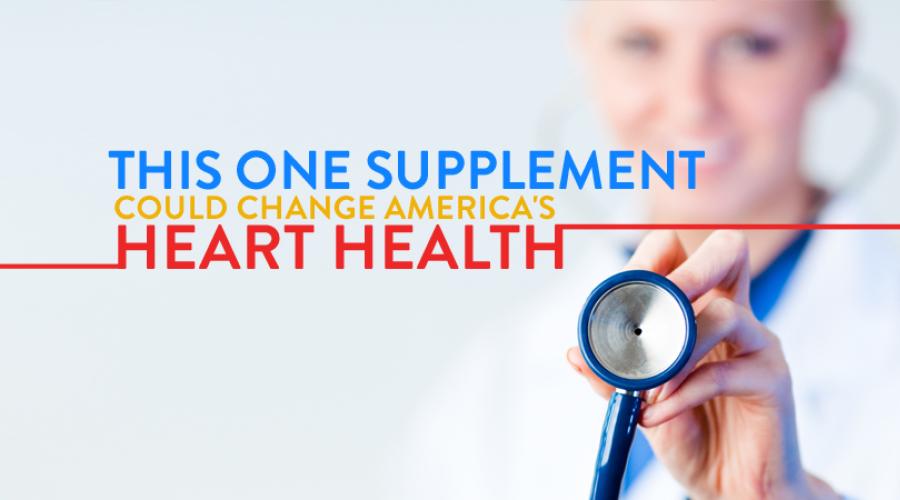
By now, we all know we need to keep our hearts happy and healthy. Heck, we can't forget it. From 5K runs to food labels, heart health reminders are everywhere. Some of these measures, like having a glass of red wine at night, aren’t difficult to do. But for some of us, some measures, such as eating a healthy diet and getting enough exercise every week, can be challenging. In the last several years, a heart-healthy nutrient has been gaining a lot of attention, and the oral supplement is as easy to take as that glass of wine. The nutrient is Ubiquinol, a form of Coenzyme Q10 whose natural production within the body can be compromised by age, health conditions, or the use of certain medications, including statin drugs.
Ubiquinol and Heart Health
Ubiquinol is one of two main forms of coenzyme CoQ10 that is produced naturally by the body. CoQ10 is found in every cell in the body and is a prime engine for the production of energy that occurs within the mitochondria of cells. Ubiquinol is involved in at least 95 percent of the body’s cellular energy production.
A growing number of studies have shown that CoQ10 as Ubiquinol helps promote and maintain a healthy heart. In a study involving patients with low ejection fraction, a metric that refers to the volume of blood pumped out of the heart with each heartbeat, Ubiquinol was shown to improve ejection fraction. The patients in this study had a mean ejection fraction of 22 percent (normal ejection fractions are considered to be between 50 percent and 65 percent), and predictably low CoQ10 levels. The researchers gave the patients supplemental Ubiquinol and closely followed the results. Mean ejection fraction rose from 22 percent to a mean of 39 percent with Ubiquinol supplementation, and the researchers concluded that the Ubiquinol supplement correlated with both clinical improvement and improvement in measurement of left ventricular function.
Ubiquinol has been shown to be more bioavailable and may replenishCoQ10 levelsmore effectively than conventional CoQ10 supplements.
How CoQ10 Levels Can Be Compromised
Certain factors have been linked to decreased levels of CoQ10 in the cells and plasma, as well as to a diminished ability of the body to convert CoQ10 into Ubiquinol, the form the body needs in order to put it to use. Heart disease and other chronic illnesses are associated with reduced levels of CoQ10 in the body. Aging, unfortunately, has also been shown to diminish the body’s ability to turn CoQ10 into Ubiquinol. The body’s ability to make the conversion of CoQ10 into the active Ubiquinol form can start to slow even as early as 30, although this generally occurs around age 40.
Statin Drugs
There is another key factor that can diminish the body's ability to produce CoQ10. This factor is an unnatural and unintended consequence of statin therapy. Statins drugs, also known as HMG-CoA reductase inhibitors, are aimed at reducing cholesterol levels and helping prevent heart disease. Statins include drugs sold under the brands Lipitor®, Zocor®, and Crestor®, among others, and are consumed by approximately one in four Americans over the age of 45. That’s 32 million Americans—a staggering number. Statins are very effective at reducing cholesterol, and the breadth of their health benefits may not yet be fully understood.
But the unintended consequence of statin therapy is a diminishing of the body’s ability to produce CoQ10. Because CoQ10 is produced via the same process as cholesterol (the mevalonate pathway), the statin that slows down the body’s production of cholesterol also interferes with the production of CoQ10. Since 2007, Kaneka Nutrients has been the only company to design and patent Ubiquinol, an easily ingested supplement that is ready for the body to use without interfering with the ability of statins to slow down the production of cholesterol, to replenish the body’s levels of CoQ10.
How Ubiquinol Can Benefit America’s Heart Health
Lipid-soluble Ubiquinol is easily available as an oral supplement and has been shown to effectively replace levels of CoQ10 that have been depleted as a result of statin medications. Statin users should be aware that taking CoQ10 in its non-reduced form is not the best solution because the body is often unable to convert CoQ10 into Ubiquinol. Ubiquinol, however, is the active, antioxidant form that can easily be absorbed by the body and is ready to be used by cells.
In addition to having that glass of wine at dinner, going for a run and cutting back on unhealthy foods, supplemental doses of Ubiquinol can go a long way toward supporting America’s heart health. Ubiquinol is available over-the-counter at nearly every pharmacy and is often found on the same shelves as conventional CoQ10 supplements. Beginning as early as 30, when the body’s ability to convert conventional CoQ10 into the active Ubiquinol form may diminish, just about everyone can benefit from taking a Ubiquinol supplement. As age increases, so too can beneficial Ubiquinol intake. If you over 40 or are dealing with a health condition, your body’s ability to produce CoQ10—and convert it to Ubiquinol—may be compromised. For the 25 percent of American men and women who are reaping the benefits of statin medication, the unintended consequence of decreased CoQ10 levels can be safely and easily remedied by a couple hundred milligrams of Ubiquinol per day.
References
- Langsjoen PH, Langsjoen AM. Supplemental ubiquinol in patients with advances congestive heart failure. Biofactors. 2008;32(1-4):119-28.
- Wehrwein P. Statin use is up, cholesterol levels are down: Are Americans’ hearts benefiting? 2011 blog post on Harvard Health Publications. Link: http://www.health.harvard.edu/blog/statin-use-is-up-cholesterol-levels-are-down-are-americans-hearts-benefiting-201104151518.












